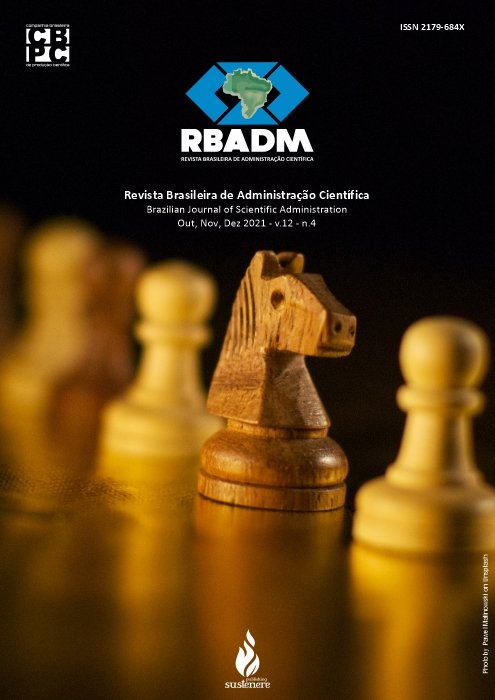Performance evaluation in cargo handling in ports and port terminals: literature review
DOI:
https://doi.org/10.6008/CBPC2179-684X.2021.004.0026Keywords:
Port Terminals, Cargo Handling, Performance evaluation, ProKnow-CAbstract
Advances in world trade in recent decades, with the accelerated development of new technologies, as well as trade integration between countries, also accelerated the process of interaction between global logistics chains, so that competitiveness began to be evaluated worldwide, in a highly competitive scenario. Transport has become an extremely necessary factor in the planning of organizations, since cost reduction and increased efficiency bring a competitive advantage to the market. Thus, port structures are the main ways in which the wealth produced is moved and traded, and it is necessary to evaluate the performance of cargo handling in ports and port terminals, so that they are recognized as levers for economic development, increased productivity and the generation of employment and income. Thus, this article sought to map and analyze the relevant existing literature on the subject, based on the use of the intervention instrument Knowledge Development Process-Constructivist (ProKnow-C) to guide the selection and critical analysis of the literature in a systematic way. The results found show that the current literature on the subject is more intensely concerned about the context of management, market and infrastructure, efficiency and operational, with mastery of indicators related to the operational productivity of cargoes and their geographic location in relation to port environments, demonstrating great concern with reducing costs to users and the end consumer. The development of a performance evaluation carried out in an integrated and holistic way is pointed out as a research opportunity, taking into account the perceptions of the manager(s), since the articles in the bibliographic portfolio (BP) address and evaluate, mostly just a fragment of the context, rather than the overall, structured assessment. This leads to a fractional view of performance, which can lead to wrong decisions, in addition to failing to consider and perceive more advantageous opportunities.
Downloads
Downloads
Published
Issue
Section
License
Copyright (c) 2021 Brazilian Journal of Scientific Administration

This work is licensed under a Creative Commons Attribution-NonCommercial-NoDerivatives 4.0 International License.
The CBPC - Companhia Brasileira de Produção Científica (Brazil CNPJ: 11.221.422/0001-03) the material rights of the published works. The rights relate to the publication of the work anywhere in the world, including rights to renewals, expansions and dissemination of the contribution, as well as other subsidiary rights. All electronically published works may subsequently be published in printed collections under the coordination of this company and / or its partners. The authors preserve the copyright, but are not allowed to publish the contribution in another medium, printed or digital, in Portuguese or in translation.









